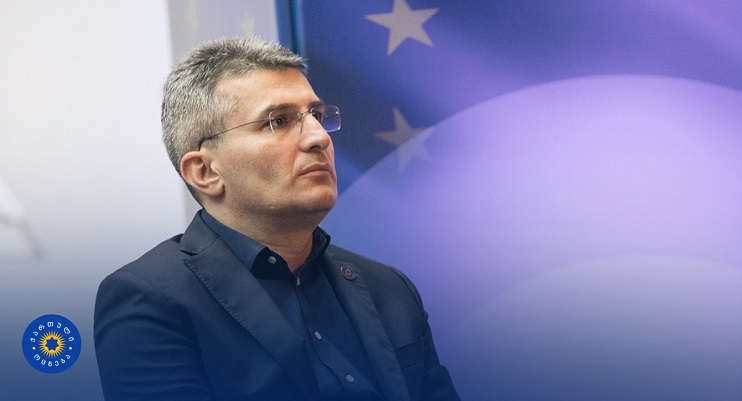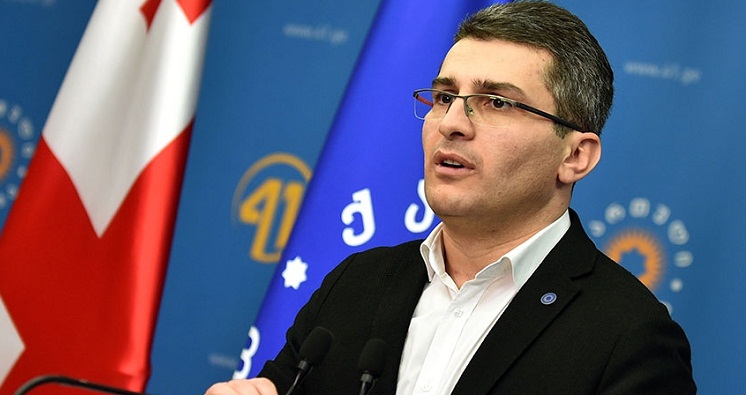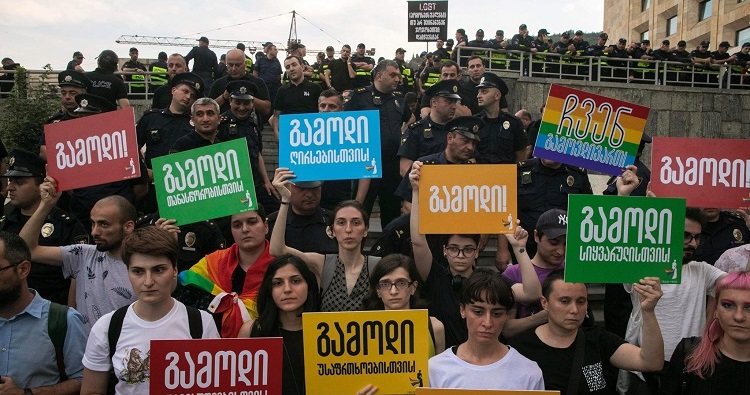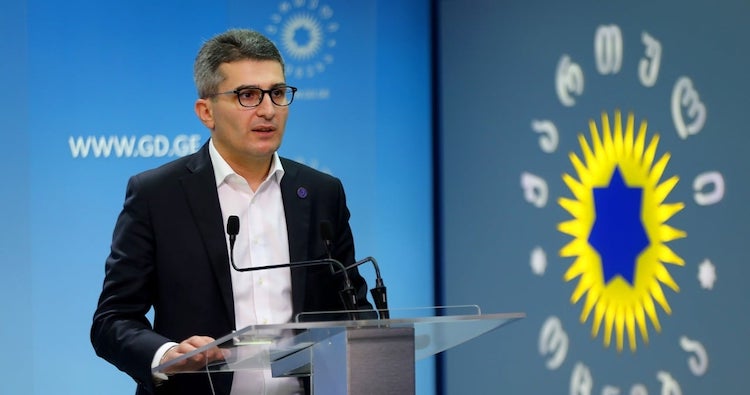Ruling party rejects claims on backing for potential bill against “LGBT propaganda”

Mamuka Mdinaradze, the head of the ruling Georgian Dream party in the Parliament, rejected claims on the party backing a potential bill banning “LGBT propaganda” as “fake”. Photo: Mamuka Mdinaradze’s Facebook
Mamuka Mdinaradze, the head of the ruling Georgian Dream party in the Parliament, on Wednesday rejected claims by domestic opposition groups and civil sector that the party had plans to back a potential bill banning “LGBT propaganda” and hampering the country’s European integration.
The claims followed the claim by Pridon Injia, an MP of European Socialists, who on Tuesday said the party had plans to introduce the bill to reflect calls voiced at a rally in Tbilisi last week, where organisers demanded legal changes for banning “LGBT propaganda” and prevent the influence of “fake European values” on the country’s youth.
In his comments, Mdinaradze said his party would not support the adoption of the bill if proposed, adding such a law would contradict the country’s current legal framework and benefit the interests of the “radical wing” of the domestic opposition.
He also added the Government would not allow the violation of interests and rights of any groups and communities living in the country.
It is noteworthy that the radical United National Movement opposition and its affiliates have raised such claims”, Mdinaradze said, noting he believed “any unhealthy propaganda can be opposed by healthy propaganda”.
Opposition figures claimed the ruling party had plans to use opposition MPs “affiliated” with it to propose the bill, following the failure to adopt a bill on the transparency of foreign influence in April following widespread public protests, in a bid to “discourage” the EU from granting Georgia its membership candidate status by the end of this year.
In remarks on the potential proposal of the bill, Christian Petry, a visiting member of the Committee for European Union affairs in the German Parliament, on Wednesday said if approved, such a bill would create “serious obstacles” for the country’s integration into the European Union.
In his media comments, the lawmaker stressed any country was judged on how it treated different groups.
The far-right Conservative Movement previously submitted a bill banning “LGBT propaganda” to the Parliament, but the legislative piece has not been proposed for voting in the lawmaking body so far.
 Tweet
Tweet  Share
Share





